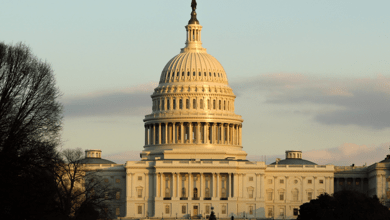
What is the MORE Act & Will It Pass?
Published on 12/11/20
Cannabis legalization across the U.S. may be coming soon, thanks to legislation passed in the House of Representatives. The Marijuana Opportunity Reinvestment and Expungement (MORE) Act is a proposed piece of legislation that removes cannabis from the Controlled Substances Act and eliminates criminal penalties for individuals who manufacture, distribute or possess marijuana at a federal level. Keep reading to learn all about the MORE Act, what will happen when it passes and what's next if it doesn't.
What is the MORE Act?
 pexels.com
pexels.comRep. Jerrold Nadler (D-NY-10) and Senator Kamala Harris (D-CA) introduced the MORE Act simultaneously into both houses of Congress on July 23, 2019. Besides eliminating criminal penalties, the MORE Act does a great deal for the cannabis industry and its legitimacy.
This bill specifically requires the Bureau of Labor Statistics to begin publishing demographic data on cannabis business owners and employees, establishes a trust fund to support programs and businesses impacted by the war on drugs and imposes that a 5% excise tax on cannabis products deposits into this trust fund. It also makes Small Business Administration loans and services available for cannabis-related businesses, prohibits the denial of federal public benefits due to certain cannabis-related convictions and prohibits denial of public benefits under immigration law from cannabis-related events. Furthermore, the Act establishes a process to expunge convictions and conduct review hearings concerning federal cannabis offenses and directs the Government Accountabilities Office to study the societal impact of cannabis legalization.
Basically, it allows cannabis business owners the same rights as any other small businesses in the country and starting to make reparations for individuals and communities impacted most by the war on drugs. Unfortunately, the MORE Act does not allow those with prior marijuana convictions to hold a job in the industry - effectively barring many people hurt most by the drug war from participating.
Bipartisan Vote Passes MORE Act
 twitter.com
twitter.comWhile the MORE Act originally planned for a vote on the House floor in September 2020, centrist Democrats worried it might be inappropriate to vote on cannabis legislation while there was still no additional pandemic relief for COVID-19 and rescheduled the vote after the 2020 election. After cannabis legalization swept the 2020 election and public support for cannabis has increased across the political spectrum, House Majority Leader Steny Hoyer (D-MD) announced that the MORE Act would finally get a vote in the House in December.
After several days of debates, several Republicans condemned Democrats for giving attention to cannabis during the pandemic and said that they were rushing to legalize it. In a rebuttal, Rep. Earl Blumenauer (D-OR) said "we're not rushing to legalize marijuana, the American People have already done that. We're here because Congress has failed to deal with the disastrous War on Drugs, and do its part for the over 50 million regular marijuana users in [the U.S]."
When the MORE Act 2020 vote date came along, the House actually approved the ruling in a 225-160 vote.
The MORE Act Passed the House: What's Next?
 Wikipedia
WikipediaSounds like a win, right? Well, it is - kind of. If you remember American Government class or Schoolhouse Rock, after a bill passes in the House of Representatives, the Senate must also debate and pass the bill and then finally signed into law by the President.
Unfortunately, Senate Republicans do not have the same sentiments toward marijuana as multitudes of American people do. Specifically, Senate Majority Leader Mitch McConnell does not feel that marijuana should be legalized and said he has no plans to vote on the MORE Act in congress. Therefore, if the bill fails to reach a vote when Congress adjourns on Jan. 3, the bill dies. If the Act does somehow pass the Senate, it would then need to be signed into law by the president.
What if the MORE Act Doesn't Pass the Senate?
If the Senate doesn't vote by Jan. 3 and lets the MORE Act bill die, the new 2021-2022 session of Congress will have to reintroduce the bill into both the House of Representatives and the Senate again. From there, the entire process of editing the bill, calling for debates and another vote will have to start over again in both houses.
Of course, this is frustrating for the marijuana industry and its supporters, but that's how the forefathers designed our government. Luckily, federal legalization has made it this far already, and the MORE Act vote results show that marijuana legalization is coming soon. With growing public support for marijuana on both sides of the political spectrum, another bill could likely pass with another vote - it's just going to take plenty of time.
Do you think that the MORE Act will pass the Senate or that we will have to wait until the next session of Congress to see federal marijuana legalization? Let us know what you think in the comments below!








